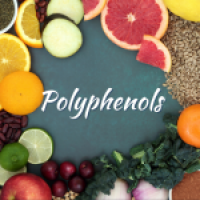Selenium: A Critical Nutrient for Health

Selenium is a trace mineral essential to human health, playing a crucial role in various physiological processes. Although required only in small amounts, selenium’s impact on bodily functions and overall well-being is substantial. This article explores the importance of selenium, highlights the biological functions negatively impacted by selenium deficiency, discusses disease states associated with deficiency, identifies dietary sources of selenium, and examines how other vitamins and minerals interact with selenium to support health.
Biological Functions of Selenium
Selenium is a vital component of selenoproteins, which are essential for numerous biological functions, including:
- Antioxidant Defense: Selenium is a critical part of the enzyme glutathione peroxidase, which helps protect cells from oxidative damage by neutralizing harmful free radicals.
- Thyroid Hormone Metabolism: Selenium is crucial for the conversion of thyroxine (T4) to the more active triiodothyronine (T3), thus playing a vital role in thyroid function and metabolic regulation.
- Immune Function: Selenium supports the immune system by enhancing the proliferation of activated T-cells and the activity of natural killer cells.
- DNA Synthesis and Repair: Selenium-containing enzymes are involved in DNA synthesis and repair, crucial for maintaining genetic stability and preventing mutations.
Impact of Selenium Deficiency
A deficiency in selenium can lead to several adverse effects on health due to its involvement in critical biological processes. Key areas negatively impacted by selenium deficiency include:
- Increased Oxidative Stress: Without adequate selenium, the body’s ability to counteract oxidative damage diminishes, leading to cellular damage and increased risk of chronic diseases.
- Impaired Thyroid Function: Selenium deficiency can disrupt thyroid hormone metabolism, resulting in hypothyroidism or other thyroid-related disorders.
- Weakened Immune Response: Insufficient selenium levels can compromise the immune system, making the body more susceptible to infections and illnesses.
- Poor Cardiovascular Health: Selenium is involved in maintaining heart health, and deficiency has been linked to conditions such as Keshan disease, a type of cardiomyopathy.
Disease States Linked to Selenium Deficiency
Several diseases and health conditions are associated with selenium deficiency:
- Keshan Disease: This condition is a potentially fatal cardiomyopathy seen in selenium-deficient regions, characterized by heart failure and fibrosis.
- Kashin-Beck Disease: A type of osteoarthropathy that leads to joint deformity and impaired growth, primarily affecting children and adolescents in selenium-deficient areas.
- Hypothyroidism: Low selenium levels can lead to decreased production of active thyroid hormones, contributing to hypothyroidism and related symptoms like fatigue, weight gain, and depression.
- Compromised Immune Function: Selenium deficiency can result in an increased risk of infections due to impaired immune responses.
Dietary Sources of Selenium
Selenium is obtained from various dietary sources. The amount of selenium in plant foods depends on the selenium content of the soil where they are grown. Key sources include:
- Brazil Nuts: Among the richest sources, a single Brazil nut can provide more than the daily recommended intake of selenium.
- Salmon and other seafoods: Salmon contains significant amounts of selenium in addition to high amounts of Omega-3’s. Shellfish and other seafood are excellent sources of selenium. While meats such as pork, chicken, and beef contain some selenium, you are also taking on pro-inflammatory molecules when you consume these, making seafood a much healthier choice on the whole.
- Grains and Cereals: Whole grains and cereals can contribute to selenium intake, especially if grown in selenium-rich soil. Grains and cereals, however, are often grown with traditional agricultural methods that only supplement nitrogen, phosphorous, and potassium rather than enriching the soil with trace elements such as selenium. This is not to mention the immense health dangers posed by wheat, which is the most common go-to for many people when grains are suggested.
- Dairy Products: Milk, yogurt, and cheese provide selenium in varying amounts. While dairy does contain some selenium, the pro-inflammatory effects of dairy in most people make this a less than ideal source of selenium.
Synergy with Other Nutrients
Selenium does not work in isolation; it interacts with other vitamins and minerals to support optimal health. Important synergistic relationships include:
- Vitamin E: Both selenium and vitamin E function as antioxidants. Together, they provide a more robust defense against oxidative stress and protect cellular integrity.
- Iodine: Selenium and iodine work together in thyroid hormone metabolism. Adequate levels of both are necessary for healthy thyroid function and hormone production.
- Zinc: Zinc and selenium play complementary roles in immune function. Adequate levels of both minerals support a strong and responsive immune system.
- Vitamin C: This vitamin enhances the antioxidant capacity of selenium, further protecting cells from damage.
Why Your Functional Medicine Practitioner Might Ask You to Supplement Your Selenium Intake
A functional medicine practitioner may recommend adding selenium to your supplement regimen for several compelling reasons. Selenium, a trace mineral, plays a pivotal role in numerous physiological processes critical to maintaining health and preventing disease. Here are some reasons why selenium supplementation might be considered essential in a functional medicine approach:
-
Enhanced Antioxidant Protection: Selenium is a key component of the enzyme glutathione peroxidase, which helps reduce oxidative stress by neutralizing free radicals. This antioxidant function is crucial for preventing cellular damage and reducing the risk of chronic diseases such as cancer and cardiovascular diseases.
-
Thyroid Health: Selenium is vital for the proper functioning of the thyroid gland. It aids in the conversion of thyroxine (T4) to triiodothyronine (T3), the active form of thyroid hormone, thus supporting metabolism and energy regulation. Selenium supplementation can be particularly beneficial for individuals with thyroid dysfunction, such as Hashimoto’s thyroiditis or hypothyroidism.
-
Immune System Support: Selenium plays a significant role in modulating the immune system. It enhances the activity of natural killer cells and the proliferation of activated T-cells, which are essential for a robust immune response. This makes selenium particularly important for individuals with weakened immune systems or those at risk of frequent infections.
-
Cardiovascular Health: Adequate selenium levels are associated with reduced risk of cardiovascular diseases. Selenium’s antioxidant properties help protect against oxidative stress and inflammation, both of which are contributing factors to heart disease. Additionally, selenium deficiency has been linked to conditions such as Keshan disease, a type of cardiomyopathy.
-
Cognitive Function: Emerging research suggests that selenium may play a role in maintaining cognitive function and reducing the risk of neurodegenerative diseases such as Alzheimer’s disease. Selenium’s antioxidant properties help protect neurons from oxidative damage.
-
Detoxification: Selenium is involved in the detoxification processes of the liver, helping to eliminate harmful substances from the body. This is particularly relevant in a functional medicine approach that often emphasizes detoxification and reducing the body’s toxic burden.
References
-
Rayman, M. P. (2012). Selenium and human health. The Lancet, 379(9822), 1256-1268. Retrieved from https://www.sciencedirect.com/science/article/abs/pii/S0140673612604089
-
Drutel, A., Archambeaud, F., & Caron, P. (2013). Selenium and the thyroid gland: more good news for clinicians. Clinical Endocrinology, 78(2), 155-164. Retrieved from https://pubmed.ncbi.nlm.nih.gov/22937798/
-
Steinbrenner, H., & Sies, H. (2013). Selenium homeostasis and antioxidant selenoproteins in brain: implications for disorders in the central nervous system. Archives of Biochemistry and Biophysics, 536(2), 152-157. Retrieved from https://pubmed.ncbi.nlm.nih.gov/23851094/
-
Fairweather-Tait, S. J., Bao, Y., Broadley, M. R., Collings, R., Ford, D., Hesketh, J. E., & Hurst, R. (2011). Selenium in human health and disease. Antioxidants & Redox Signaling, 14(7), 1337-1383. Retrieved from https://pubmed.ncbi.nlm.nih.gov/20712443/
-
Vinceti, M., Filippini, T., Del Giovane, C., Dennert, G., Zwahlen, M., Brinkman, M., … & Schüz, J. (2014). Selenium for preventing cancer. Cochrane Database of Systematic Reviews, (3). Retrieved from https://pubmed.ncbi.nlm.nih.gov/24554356/
-
Chariot, P., & Bignani, O. (2003). Skeletal muscle disorders associated with selenium deficiency in humans. Muscle & Nerve: Official Journal of the American Association of Electrodiagnostic Medicine, 27(6), 662-668. Retrieved from https://pubmed.ncbi.nlm.nih.gov/12766976/
-
Reilly, C. (2006). Selenium in food and health. Springer Science & Business Media. Retrieved from https://link.springer.com/book/10.1007/1-4020-4610-6
-
Huang, Z., Rose, A. H., & Hoffmann, P. R. (2012). The role of selenium in inflammation and immunity: from molecular mechanisms to therapeutic opportunities. Antioxidants & Redox Signaling, 16(7), 705-743. Retrieved from https://pubmed.ncbi.nlm.nih.gov/21955027/
-
Schrauzer, G. N. (2000). Selenomethionine: a review of its nutritional significance, metabolism and toxicity. The Journal of Nutrition, 130(7), 1653-1656. Retrieved from https://academic.oup.com/jn/article/130/7/1653/4686184
-
Navarro-Alarcon, M., & Cabrera-Vique, C. (2008). Selenium in food and the human body: a review. The Science of the Total Environment, 400(1-3), 115-141. Retrieved from https://pubmed.ncbi.nlm.nih.gov/18752865/

Further Reading on Supplements:
- How Magnesium Helps Your Body
- Ubiquinol / CoQ10 Benefits and Side Effects
- Health Benefits of Taurine
- Could Your Pain Be Caused by a Vitamin D Deficiency?
- B Vitamins: Essential Nutrients for Optimal Health
- Can B6 Cause Neuropathy?
- Sulforaphane, Mitochondria, and Oxidative Stress
- Functions of Lysine in the Body
- What are Adaptogens and How Do They Work?
- How Milk Thistle Supports Liver Health
- What Does L-Carnitine Do for the Body?
- Glutathione: The Master Antioxidant
- TUDCA for Liver and Gallbladder Health
- Health Benefits of Alpha Lipoic Acid (ALA)
- Benefits of Black Seed Oil
- Understanding Polyphenols: Nature’s Potent Health Allies



